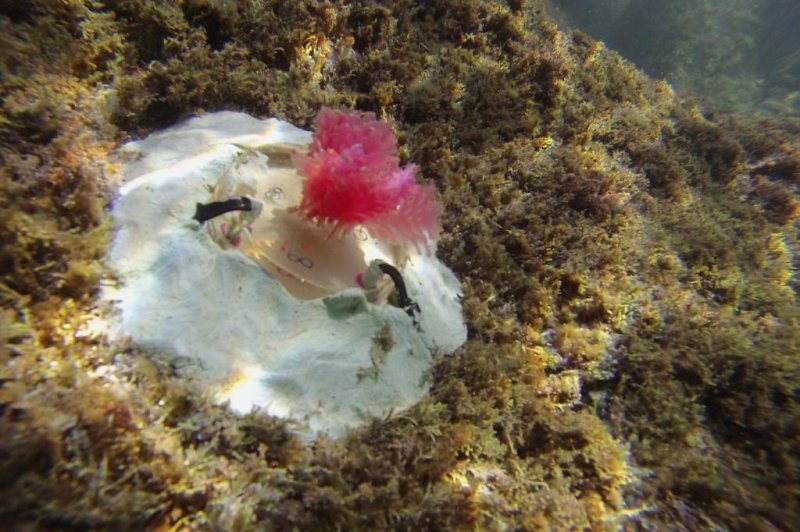Researchers are installing small plastic structures meant to mimic natural coralline algae off the coast of Italy. Photo courtesy University of Portsmouth
June 27 (UPI) -- Researchers from the University of Portsmouth in Great Britain hope an artificial coral reef can protect species from the ill effects of global warming, including rising ocean temperatures and ocean acidification.
Coral reefs anchor the food chains and ecosystems that support much of the ocean's biodiversity. But the health of many reefs continue to decline as ocean waters become more acidic and temperatures rise.
Scientists in Portsmouth are working on an artificial reef model with hopes of creating suitable underwater refuges for vulnerable species.
Researchers have created small plastic structures mimicking natural coralline algae, a type of red algae with calcareous deposits. Coralline algae are the main builders of reefs in the Mediterranean Sea. They also especially vulnerable to ocean acidification, as their calcium carbonate skeleton easily dissolves in low pH conditions.
Researchers plan to build large-scale artificial coral reefs near existing reefs and see if the structures can harbor vulnerable species. Scientists are also keen to find out if the artificial reefs can serve as scaffolding for coralline algae.
"In a small and confined seas like the Mediterranean, these potential 'buffers' are among the dominant organisms," Federica Ragazzola, a marine biologist at Portsmouth, said in a news release. "Coralline algae belong to these groups of organism that may play an important role in buffering the pH decrease thus creating a micro-environment that may help some species to resist future climate changes."
With help from researchers in Italy, the Portsmouth team began installing the first synthetic corals this month in the Gulf of La Spezia, off the northwest coast of Italy.
"Our research will allow us to clarify the function of the coralline algae reef as a buffer for diversity, abundance, reproductive, ecological and structural characteristics of the associated fauna," said Chiara Lombardi, from the Italian National Agency for New Technologies, Energy and Sustainable Economic Development. "As a consequence, our results will be important for the planning of future protection and management strategies involving coralline algae bioconstructions."















